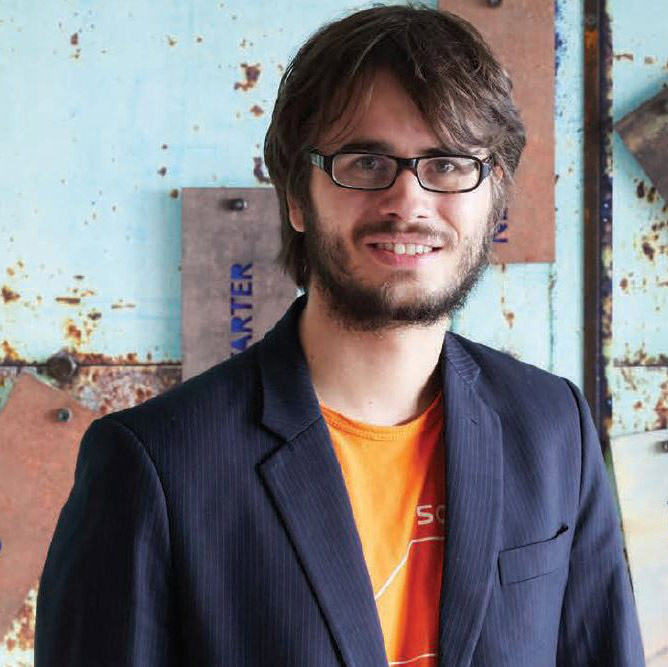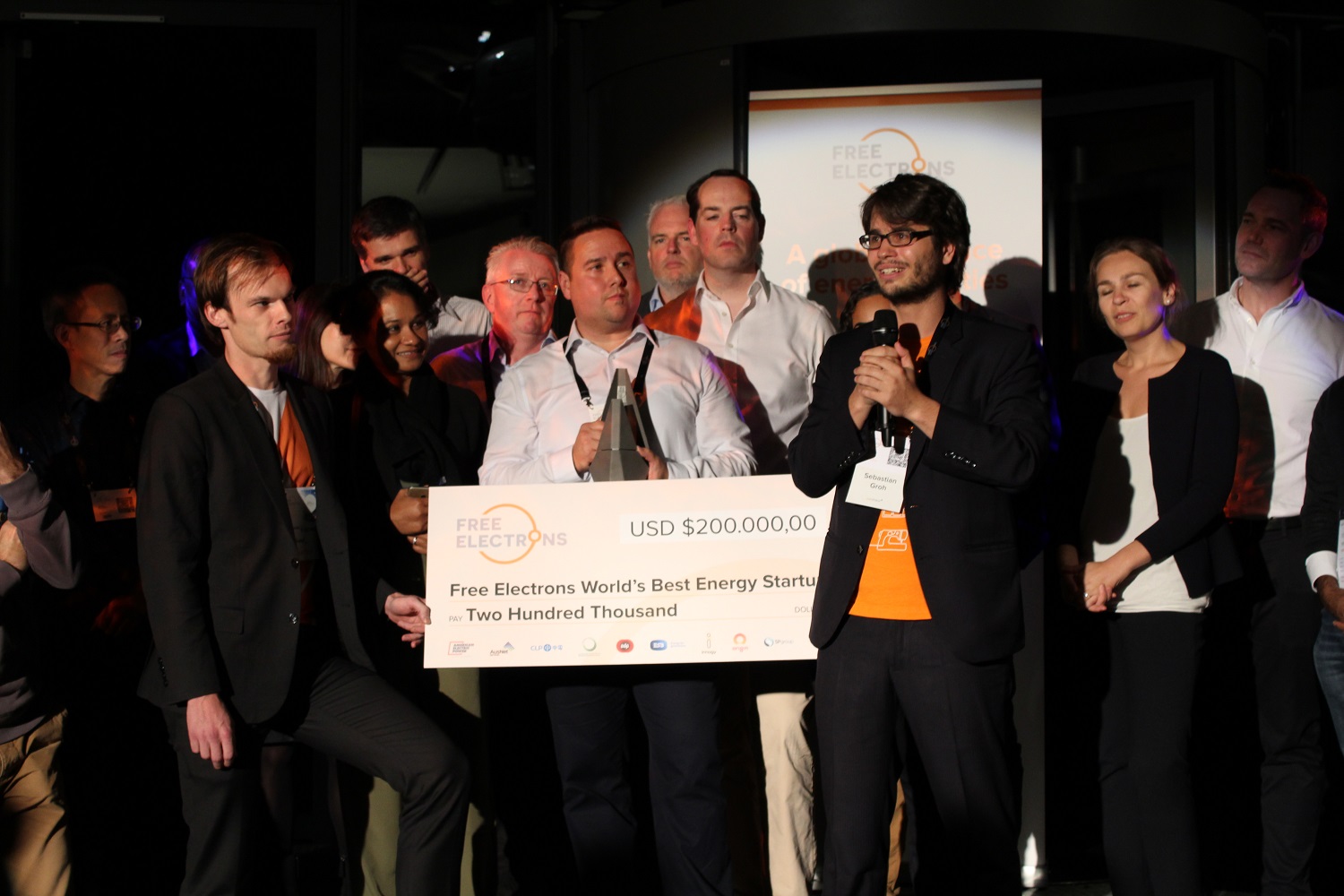SOL share was considered one of the most innovative startups on the planet. The company based in Bangladesh won the Free Electrons international competition this year and was the target of a 500 thousand dollars investment by EDP Ventures. In this interview, Sebastian Groh explains why the focus of his work on the 5 Ds applied to energy: decentralization, decarbonization, disruption, democratization and digitalization.
A German choosing Bangladesh to live and launch his business, is not a common situation. How did this adventure begin?
My motivation had to do with the fact that in Bangladesh there are about five million solar home systems for self-consumption, which represents a universe of 25 million people who have the sun as their primary source of energy. And this is unique in the world. There is no country with this degree of expansion in solar systems. This solution helps, above all, to tackle the problem of poverty. People who do not have access to electricity choose solar as their source of energy because it is the best option they have. This is a very different reality from the Western world, which has other options on the table. Here we discuss the economic scope of solar, because there are no other networks yet.
So I was very impressed with these numbers and went to Bangladesh, as a student, to learn how the system works. I did my post-graduation in micro-energy, and discovered a number of things that were decisive for me, to change the rules of the game.


In the meantime, it launched SOLshare. How does your business work?
One of the things we discovered was that people pay a huge price of electricity for KW / hour. Of course they buy small quantities, but they pay an expensive price. The second thing we discovered was that there is a strong ability to access this source of energy which is the sun. It's two o'clock in the afternoon, the sun is shining, the battery is full. And what happens next? The energy is wasted. Therefore, a large sum is paid for KW / h, while thousands of KW are wasted every day. What SOLshare has tried to realize is how you can build a platform where you can interconnect all power generation systems to exploit these lost resources.
How does SOLshare profit with this system?
This system is completely based on a shared economy approach, such as an Airbnb or Uber, which consists of using a resource, in our case, a home solar system, and arranging a way to get it to more people. In contrast, we charge a fee for each KW / h shared between neighbors. It's our revenue stream.
Can we say that, at the same time, SOLshare contributes to the economic and social development of Bangladesh?
I would say that people are very limited in the access to electricity. When SOLshare appears in your localities with this offer, it may mean that you first have access to electricity. And electricity makes a world of things possible. If you think about it a little, everything we do during a day, somehow, depends on electricity. The whole development of a community comes down to such factors as "is there enough electricity?", "is it affordable?". How can I have an economic activity if I do not have access to electricity? If we think about it, everyone has a cell phone. But if you do not have access to electricity, how do you recharge it?
EDP Ventures has invested in your business. How important are these investments?
Firstly, EDP was seriously committed to the sustainable energy initiative SEforALL (Sustainable Energy for All). António Mexia, who is CEO of EDP, is also the president of this initiative. EDP is one of the companies with projects in Africa, which is one of the regions that we are looking at for the future. And we were very motivated with the support shown by EDP in Free Electrons. We think that the approach we are taking in Bangladesh will become a relevant topic here in Portugal in five years. If we think about having more solar systems on the terraces in the future, the question will be: with my own solar system, why do I need a big company to supply energy to me? Why do not I share this energy with my neighbor and my community? EDP has already realized this and is trying to find its role in this new reality. And SOLshare is a good example of what is happening today - we are tackling a serious problem of energy shortage, but we are already preparing the market for the future.

Was the Free Electrons victory a new phase in SOLshare's life?
Definitely. We came to Free Electrons and said: look, SOLshare is the utility of the future. But it was a bit of a marketing phrase with no content. Through Free Electrons we have effectively demonstrated how much truth existed in this phrase. The way we negotiate electricity in Bangladesh has enormous potential and has made us wonder how we can interconnect solar systems in the rest of the world, learn how to find the best algorithms to make the system more effective, and still be able to solve the problem of energy poverty. While solving this problem we stumbled upon this great innovation of peer-to-peer power sharing, which could be escalated later. Free Electrons has helped us to realize the potential.
During the course of Free Electrons had the opportunity to go to various parts of the world. How was this experience?
We started the competition with the bootcamp in Lisbon, then we went to Melbourne and Sydney, Australia, and then we went to San Francisco, in the United States. When Free Electrons finished in Berlin, we had learned a bit more in each module. And with each module we were convincing more utilities that SOLshare has even something to offer, even though we are working in an area where they do not have access. By definition, our customers are in areas where utilities do not operate. Even more, we are in an unknown country for most utilities.
The energy sector is on its way to a new era. In your opinion, what will the utility of the future be like?
The future of energy will be heavily decentralized, meaning that a source of supply will not be built in an area where no one needs energy, but rather where that energy will be used, with a more democratized access. The future will be decarbonised, which leads us, in our case, to the solar. And it will be digitalized. What is fascinating is that we have already combined the 5 Ds in Bangladesh. We are already a kind of utility 2.0. I think this is a good example of the future. How we reversed the cycle of innovation by building something new in rural Bangladesh, which is so innovative and disruptive.